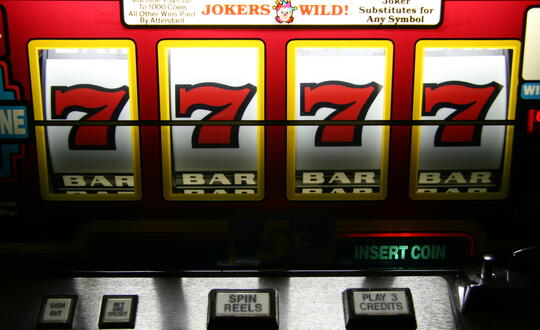The Importance of Retaining a Grandfathered Gaming Location in Nevada
Sep 23 2024
We have all heard the phrase location, location, location. In the context of gaming in Nevada, grandfathered locations refer to casinos or gaming establishments that have been allowed to continue operations under previous laws or regulations, even after new laws or restrictions were put in place. These locations often enjoy certain privileges that newer establishments do not, such as exemptions from zoning laws, gaming license restrictions, or other regulatory requirements that have since been implemented. As such, grandfathered locations can have a competitive advantage over newer establishments due to their ability to operate under more favorable terms, which can include lower operating costs or fewer regulatory hurdles.
For example, since 1991, the Nevada Gaming Commission may not approve a non-restricted gaming license (that is, a license that allows for the operation of table games and/or more than 15 slot machines) for an establishment in a county whose population is 100,000 or more unless the establishment is a resort hotel. A resort hotel is statutorily defined as having a gaming area, a certain number of rooms (based on the county), at least one bar with a seating capacity of 30 patrons, and having at least one restaurant with seating capacity of more than 60 patrons that is open 24/7.1 However, a property that held a non-restricted gaming license prior to the above law going into effect, is exempt from the resort hotel requirements provided its grandfathered status is continuously preserved.
There are a few considerations to keep in mind regarding grandfathered gaming locations in Nevada. Most notably, a gaming licensee’s grandfathered status will expire if gaming is not conducted on the premises within a period of 24 consecutive months. As a result of this, many grandfathered locations striving to retain their grandfathered status will establish “temporary casinos” on the premises, where gaming will be conducted for a short interval. This brief period of gaming is subject to strict regulatory requirements and must be approved by the Nevada Gaming Control Board and Nevada Gaming Commission in advance but allows a property to retain its grandfathered status. Preserving such status is critical because once a grandfathered status is removed, it cannot be regained.
With the regulatory benefits associated with a grandfathered location, also comes value. In particular, a property’s grandfathered status can be highly valuable, considering a grandfathered status is tied to the land and can be transferred to new owners.
In addition to the value associated with such properties under state law, grandfathered locations exist in the local city and county context as well, where a property may continue to operate with a grandfathered status despite a change in municipal code or zoning laws. In fact, many of the older casinos are located in areas where gaming would no longer be permitted under current zoning laws. However, because these establishments were already operating before the new code provisions were enacted, they are allowed to continue operations.
These grandfathered rights are an important part of Nevada’s gaming landscape, helping to preserve the heritage of some of the state's most iconic establishments while also reflecting the evolving nature of gaming regulation.
If you have any questions regarding the grandfathered status of a location or the licensing process in Nevada, please contact authors Karl Rutledge, Glenn Light, or Salma Granich.
1 Nev. Rev. Stat.§ 463.1605 (2024).